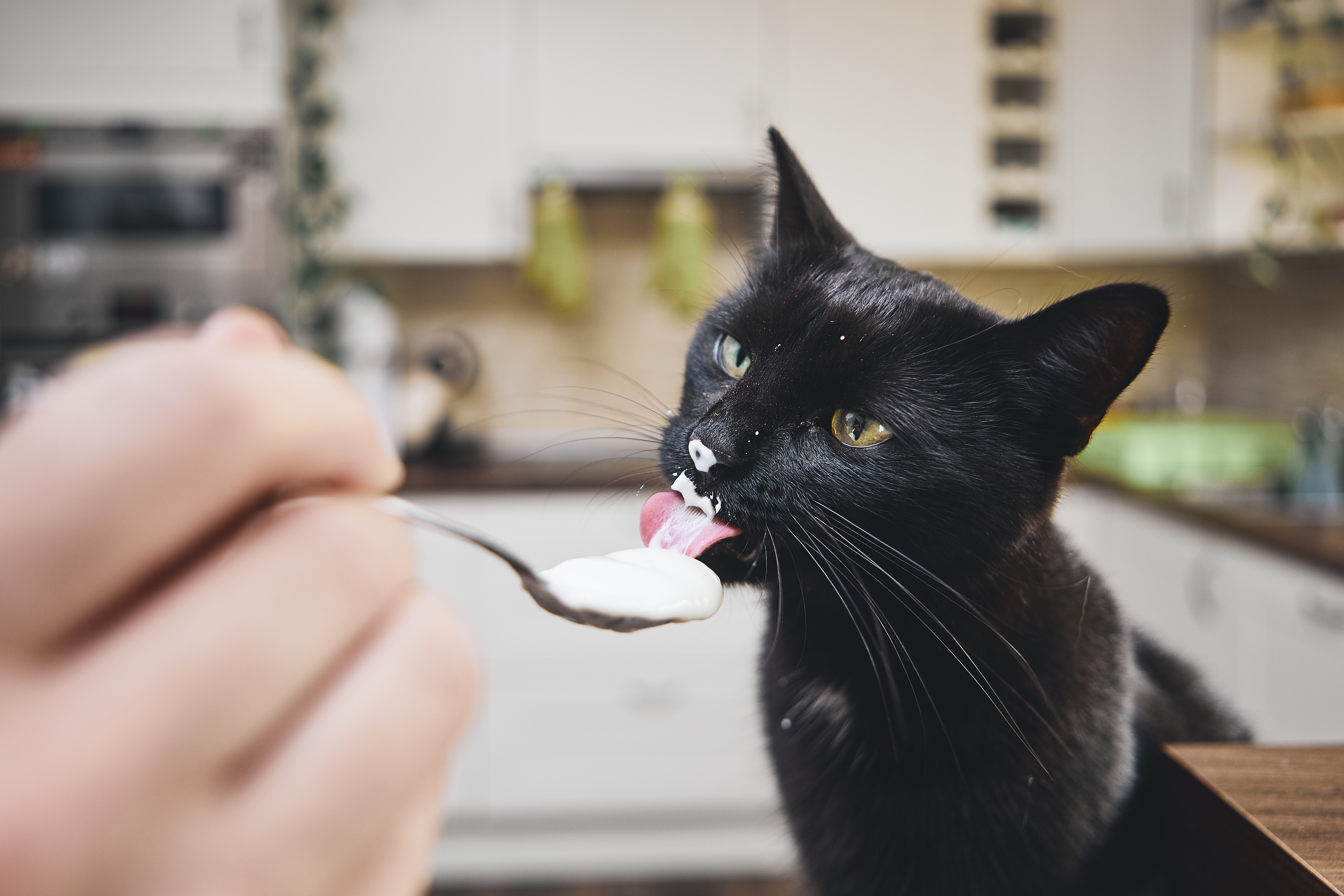What Human Foods Can Pets Eat?
As pet lovers, we’re all tempted to treat our dogs with ‘people food’ once in a while. An occasional pre-planned treat can be okay and is far better than feeding table scraps. Keep reading to learn what human foods are safe to feed your pets and the best ways to share it with them.
Can I Feed My Dog or Cat Human Food Instead of Pet Food?
Some pet owners feel more comfortable offering their pets home-cooked diets over commercially-available pet food. Switching to a home-cooked diet is a substantial commitment. Home-cooked foods are generally more expensive and time consuming than traditional canned or dry dog or cat food. However, they do offer owners better control over the ingredients that go into their furry companions’ food. If you decide to offer home-cooked food, make sure to consult a board-certified veterinary nutritionist for balanced recipes and supplement advice.
We strongly encourage all owners abide by a vet approved diet. Many human foods are safe for your pets to eat in moderation; however, always check with your veterinarian to make sure a human food is right for your individual pet.
What Human Foods Can Pets Eat?
Plain Yogurt
Yogurt is full of protein and calcium and can make a delicious snack provided it doesn’t have additional sugars or sweeteners. Try letting your pet lick your bowl after you’ve finished eating. This way, they don’t get too much, and you get to feel good sharing with them. Avoid having your pet eat directly out of the yogurt container as it could result in them ingesting the plastic.
Xylitol-Free Peanut Butter
Not only is peanut butter a popular treat among dogs, it also contains many vitamins and healthy fats that are extremely beneficial to their diet. To make your dog work for it, try stuffing peanut butter into a Kong. Serving peanut butter on a spoon that’s placed face up on the floor can also be stimulating for them and entertaining for you!
Peanut butter can also be used to make medication more appealing. Just put a little bit of PB on your pet’s pill. Offer straight PB first, then the pill, then a little bit more peanut butter. Check with your vet before crushing pills or emptying capsules into peanut butter…some medications can become harmful, inactivated, or just plain yucky when crushed.
Eggs
Try scrambling a few eggs or making a mini omelette with some spinach and a little cheese. Not only is this a healthy option, but it’s great for the shine of their coat too. Use the cheese in moderation as many pets experience gas from dairy.
Apples
An apple a day keeps the veterinarian away? After coring and seeding them, apples not only provide added nutrients and vitamins, but they also provide a satisfying crunch. Carrots are also popular with some pets.
Salmon
Fresh or canned salmon can strengthen your pet’s immune system and provide them with the fatty acids needed to keep their coat and joints healthy. Try making ‘salmon chips’ by adding extra cooking time to the fish skin only. Or, try chopping up the skin and leftover bits to add flavour, texture and appeal to a pet’s regular dry pet food.
Pumpkin
Pumpkin can help improve digestion and is a common ingredient in homemade pet treats. Mash it into dry or wet food to add interest and give your pet a healthy sweet treat.
Check out our list of pet-friendly greens to add to your pet's diet.

Remember, just like humans, dogs and cats can develop allergies. Start with small snacks first and watch for changes in their behaviour and body in case they have an adverse reaction to any new food.
Human foods are often responsible for obesity in dogs and cats. Treats and human foods should never make up more than 10% of your pet’s overall food intake. The rest should consist of a balanced commercial or nutritionist-formulated pet food.
Don’t forget to consider calories. Include any treats in your pet’s calculated daily calorie needs. To calculate your pet’s requirements, visit https://petnutritionalliance.org/.
In addition, although a lot of ‘people food’ is safe for pets, some food and household items can be toxic if ingested by your cat or dog. For a list of potentially hazardous items in your home, read our article on poison prevention tips and how to pet proof your home.
As always, ask your vet before trying new foods or treats and consider protection your pet with pet insurance from Pets Plus Us.
